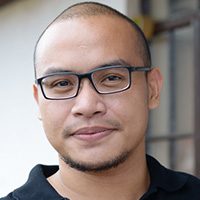SUMMARY
This is AI generated summarization, which may have errors. For context, always refer to the full article.

Barely 3 weeks before the scheduled elections, and after the Commission on Elections (Comelec) had spent P700 million in its preparations, President Rodrigo Duterte signed Republic Act 10952 on October 2, postponing the barangay and Sangguniang Kabataan (SK) elections originally slated for October 23, 2017.
Reacting to the announcement, the Comelec, through its spokesperson James Jimenez, oddly “welcomed” the news, rather than meeting it with indignation – not only for Congress’ belated action, but for practically throwing away P700 million of the taxpayer’s money. In doing so, Comelec missed that crucial opportunity to make a point by calling out Congress to be decisive on the issue of postponement the next time around. As in the past years, the cancellation came at the last few ticking minutes before the scheduled elections.
What does Republic Act 10952 provide?
It postpones the scheduled October 23, 2017, barangay and SK elections to May 14, 2018.
It must be noted that the last barangay election was held way back in October 28, 2013. Following the regular 3-year cycle, the next one was supposed to have been held in October 31, 2016, which would have been the first during President Duterte’s term of office. However, on October 15, 2016 – or barely two weeks before the scheduled election – Duterte signed Republic Act 10923, moving it to October 23, 2017. Like a déjà vu, a few weeks before October 23, 2017, Congress moved it a second time around to May 14, 2018.

Republic Act 10952 moves the scheduled elections by almost 7 months, effectively extending the term of office of barangay officials. It adopts a “hold-over” scheme as a mode of filling in vacancies, like in the previous postponement laws. This means that those who were elected during the October 28, 2013, barangay elections shall continue to hold their office until their successors are elected on May 14, 2018. This abandons the original versions of the bills in both the Senate and the House of Representatives giving President Duterte instead the power to appoint officers-in-charge (OICs).
It must be noted that the “hold-over” scheme only applies to incumbent barangay officials, excluding SK officials. This would mean that vacated positions in the youth councils will remain vacant until the next barangay and SK elections in 2018.
While it is admittedly within the powers of the Congress to determine the term of barangay officials, it is unsettling to observe that postponing elections is becoming the norm rather than the exception. The 2016 barangay election, for example, had been postponed twice and there were many postponements before that.
Is postponing an election constitutional?
Article X, Section 3, of the Constitution empowers Congress to enact a local government code, which shall provide for the “election” and the “term” of local officials, including those of the barangays.
Going a little further to Section 8, the Constitution provides that “[t]he term of office of elective local officials, except barangay officials, which shall be determined by law, shall be three years….”
By expressly excluding barangay officials from the mandatory 3-year term, this means that Congress has the discretion to make their term of office of village officials longer or shorter than prescribed. This discretion by necessary implication includes the discretion to set the corresponding dates of election.
Postponement laws appear to have been anchored on these constitutional provisions. While they give Congress discretion, this does not mean that such discretion is unbridled or without limit. The plain reading of the text of Section 8 may seem to allow Congress to freely expand the term of barangay officials to as long as 50 years or as short as one week. However, this discretion cannot be taken in isolation, but definitely in consonance with other constitutional provisions.
The most important of related provisions is the very first provision of the 1987 Constitution:
Section 1. The Philippines is a democratic and republican State. Sovereignty resides in the people and all government authority emanates from them.
The core, indispensable, and defining feature of a democratic and a republican state is the conduct of elections held at regular, periodic, and predictable intervals.
When barangay elections are regularly and periodically postponed, rather than held, democracy and republicanism are eroded, and the sovereignty of the people diminishes. When the original term is extended, it is no longer people who are the source of the authority of the barangay officials during their holdover period but Congress’ legislative power. When the source of elective officials’ mandate is not the people’s sovereignty expressed through elections, such political arrangement can hardly be characterized as democratic and republican, and therefore contrary to the Constitution.
In other words, it should be stressed that the power to postpone, which gives Congress the discretion to set the term office of barangay officials, must be exercized in strict conformity with the overriding principles of democracy and republicanism.
While it is recognized that these principles operate in the realm of reality and that there are indeed instances where postponement is necessary, they cannot however be done at whim or arbitrarily. There has to be a reason for a postponement, a cause so compelling that it overrides the democratic principles of regularity of elections. To be compelling enough to justify the setting aside of our core democratic principles, these grounds have to be factual, real, and not merely imagined. Otherwise, what stops Congress from setting aside every election at whim and kill democracy at will?
Section 5 of the Omnibus Election Code, for example, cites scenarios where elections can be postponed by Comelec: “violence, terrorism, loss or destruction of election paraphernalia or records, force majeure, and other analogous causes of such a nature that the holding of a free, orderly and honest election should become impossible in any political subdivisions.”
The present postponement law and even that one passed in 2016 are both silent as to the reason or grounds for the postponement. There are admittedly public pronouncements from the proponents, stating that the postponement is part of the President’s controversial drug war, as this is his way of getting rid of barangay officials who are involved in drugs and replacing them by appointment. But with the final version actually reverting to a holdover scheme and abandoning the earlier plan to fill in the vacancies by appointment, what reason or justification is there left?
Another consequence of the postponement which everyone seems to conveniently sweep under the carpet is its monetary cost. Postponing an election weeks before its schedule would mean that all preparations may have already been completed. While the Comelec has yet to come up with the full accounting of the public fund spent so far, its initial assessments peg the expense at P700 million. This primarily pertains to the ballots and other elections paraphernalia, hiring of additional manpower, paid employee overtimes, nationwide trainings of election workers, and voters’ education.
A very important question should be asked then: what is the practical value of moving the elections 7 months after at the cost of P700 million?
Now, considering the magnitude of the amount of the public funds unnecessarily wasted, who should take responsibility for it? There is surely a confluence of faults: Comelec, for not having strongly lobbied against it; election watchdogs and the public, for not opposing it; the President, for having signed it.
But I lay the greatest blame at the doors of Congress. Had it decided much earlier, the unnecessary and thoughtless wastage of P700 million could have been averted. A huge loss of public fund is unacceptable if it’s due to lack of foresight. It’s an enormous amount of money, which could have better spent elsewhere.
Should we seek and demand accountability over these wastage? We should. Should we all be outraged? We should. Unless we do, this is bound to happen again and again. – Rappler.com
Emil Marañon III is an election lawyer who served as chief of staff of former Comelec Chairman Sixto Brillantes Jr. He completed his LLM in Human Rights, Conflict and Justice at SOAS, University of London, as a Chevening scholar.
Add a comment
How does this make you feel?
There are no comments yet. Add your comment to start the conversation.